Value of the world's carbon markets to rise again in 2014
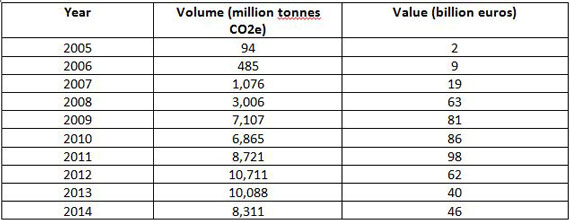 The first annual increase in carbon market trading values since 2011 will owe much to European Union action to delay allowance auctions.
The first annual increase in carbon market trading values since 2011 will owe much to European Union action to delay allowance auctions.
Jan 10th, 2014
Read more
 Subscribe to our Cleantech News feed
Subscribe to our Cleantech News feed
 The first annual increase in carbon market trading values since 2011 will owe much to European Union action to delay allowance auctions.
The first annual increase in carbon market trading values since 2011 will owe much to European Union action to delay allowance auctions.
Jan 10th, 2014
Read moreIn a draft resolution, the European Parliament Committees on Industry, Research and Energy (ITRE) and on Environment, Public Health and Food Safety (ENVI) call for an ambitious and legally-binding 2030 target for renewable energies.
Jan 10th, 2014
Read more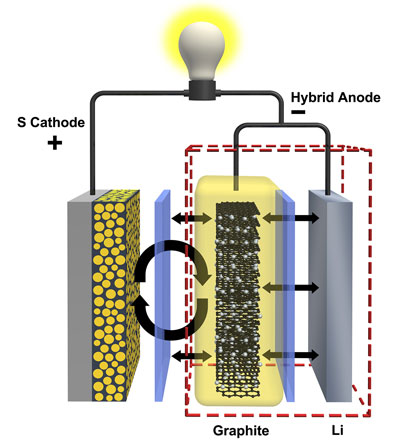 New anode quadruples life of lithium-sulfur battery, could also help store renewable energy more cheaply.
New anode quadruples life of lithium-sulfur battery, could also help store renewable energy more cheaply.
Jan 9th, 2014
Read more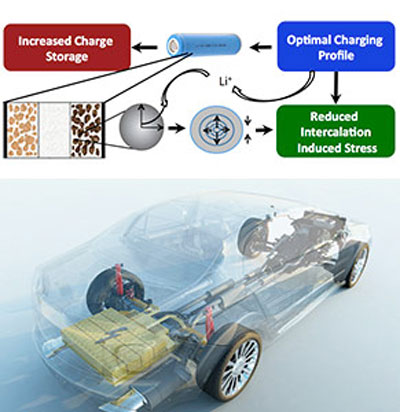 Researchers have developed a way for lithium-ion battery developers to determine in early stages whether a new material for the batteries will work. The team developed a freely available code that battery developers can use as a model to determine the optimal profile needed to charge a lithium-ion battery as well as any stresses that might be put on the materials used.
Researchers have developed a way for lithium-ion battery developers to determine in early stages whether a new material for the batteries will work. The team developed a freely available code that battery developers can use as a model to determine the optimal profile needed to charge a lithium-ion battery as well as any stresses that might be put on the materials used.
Jan 9th, 2014
Read more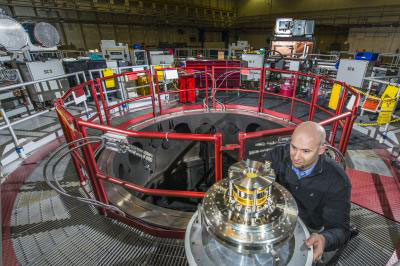 Introducition of a secondary, weaker magnetic field into a fusion experiment at Sandia's Z machine unexpectedly reduced the plasma disturbance that customarily sinks fusion efforts.
Introducition of a secondary, weaker magnetic field into a fusion experiment at Sandia's Z machine unexpectedly reduced the plasma disturbance that customarily sinks fusion efforts.
Jan 9th, 2014
Read more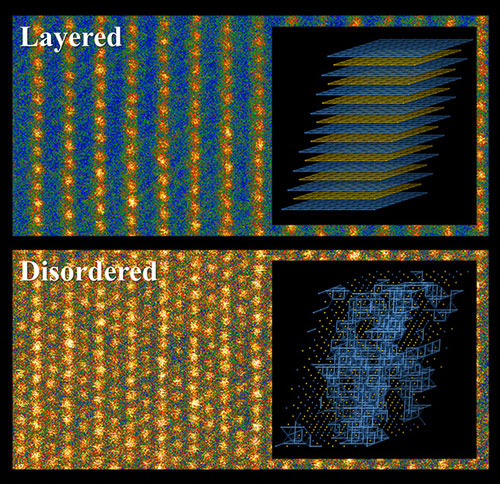 Researchers find that contrary to conventional wisdom, cathodes made of disordered lithium compounds can perform better than perfectly ordered ones.
Researchers find that contrary to conventional wisdom, cathodes made of disordered lithium compounds can perform better than perfectly ordered ones.
Jan 9th, 2014
Read more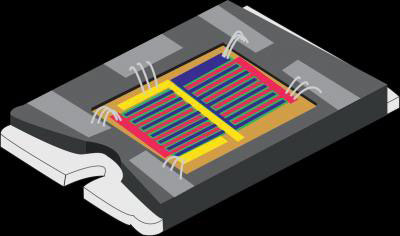 The award is one of 14 that are receiving a total of $27 million from the agency's SWITCHES program (Strategies for Wide-Bandgap, Inexpensive Transistors for Controlling High-Efficiency Systems) to find innovative ways to lower the cost and improve the efficiency of power electronics.
The award is one of 14 that are receiving a total of $27 million from the agency's SWITCHES program (Strategies for Wide-Bandgap, Inexpensive Transistors for Controlling High-Efficiency Systems) to find innovative ways to lower the cost and improve the efficiency of power electronics.
Jan 8th, 2014
Read more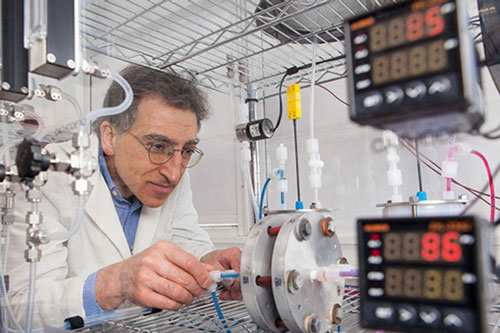 A team of Harvard scientists and engineers has demonstrated a new type of battery that could fundamentally transform the way electricity is stored on the grid, making power from renewable energy sources such as wind and sun far more economical and reliable.
A team of Harvard scientists and engineers has demonstrated a new type of battery that could fundamentally transform the way electricity is stored on the grid, making power from renewable energy sources such as wind and sun far more economical and reliable.
Jan 8th, 2014
Read moreScientists at EPFL have created a simple and scalable technique for greatly improving water splitting as a source of clean energy.
Jan 8th, 2014
Read more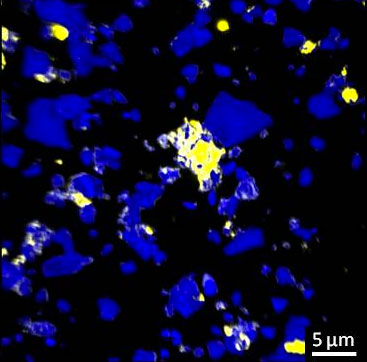 Scientists have now discovered how organic carbon is stored in soil. Basically, the carbon only binds to certain soil structures. This means that soil's capacity to absorb CO2 needs to be re-assessed and incorporated into today's climate models.
Scientists have now discovered how organic carbon is stored in soil. Basically, the carbon only binds to certain soil structures. This means that soil's capacity to absorb CO2 needs to be re-assessed and incorporated into today's climate models.
Jan 8th, 2014
Read moreResearchers at the Energy Department's National Renewable Energy Laboratory have discovered that an enzyme from a microorganism first found in the Valley of Geysers on the Kamchatka Peninsula in Russia in 1990 can digest cellulose almost twice as fast as the current leading component cellulase enzyme on the market.
Jan 7th, 2014
Read more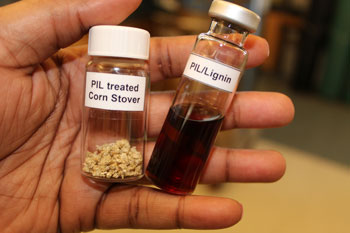 Researchers at North Carolina State University have developed a simple, effective and relatively inexpensive technique for removing lignin from the plant material used to make biofuels, which may drive down the cost of biofuel production.
Researchers at North Carolina State University have developed a simple, effective and relatively inexpensive technique for removing lignin from the plant material used to make biofuels, which may drive down the cost of biofuel production.
Jan 7th, 2014
Read more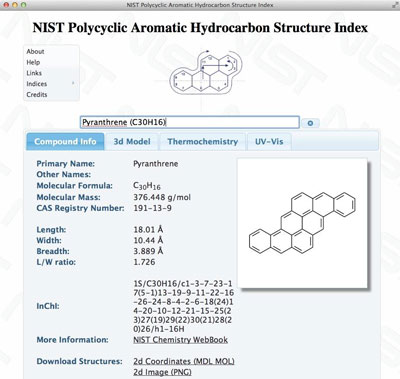 Recently, a new website containing a wealth of information on polycyclic aromatic hydrocarbons (PAHs) was made publicly available by NIST. PAHs are compounds that are produced during the combustion of hydrocarbon fuels and have significant adverse health and environmental effects. The website contains data on more than 650 PAH compounds, with many more to be added in the near future.
Recently, a new website containing a wealth of information on polycyclic aromatic hydrocarbons (PAHs) was made publicly available by NIST. PAHs are compounds that are produced during the combustion of hydrocarbon fuels and have significant adverse health and environmental effects. The website contains data on more than 650 PAH compounds, with many more to be added in the near future.
Jan 7th, 2014
Read more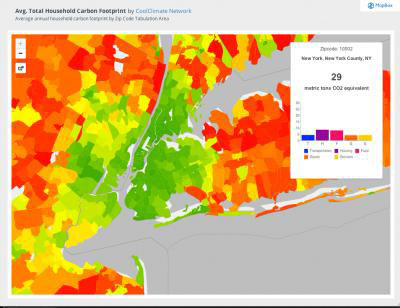 According to a new study, population-dense cities contribute less greenhouse gas emissions per person than other areas of the country, but these cities' extensive suburbs essentially wipe out the climate benefits. Dominated by emissions from cars, trucks and other forms of transportation, suburbs account for about 50 percent of all household emissions in the United States.
According to a new study, population-dense cities contribute less greenhouse gas emissions per person than other areas of the country, but these cities' extensive suburbs essentially wipe out the climate benefits. Dominated by emissions from cars, trucks and other forms of transportation, suburbs account for about 50 percent of all household emissions in the United States.
Jan 6th, 2014
Read more'Power to gas' is a key concept when it comes to storing alternative energy. This process converts short-term excess electricity from photovoltaic systems and wind turbines into hydrogen. Combined with the greenhouse gas CO2, renewable hydrogen can be used to produce methane, which can be stored and distributed in the natural gas network. Empa researchers have now succeeded in further optimising this process.
Jan 6th, 2014
Read moreResearchers have found that an increase in the use of wind power generation can make the power grid more fragile and susceptible to disruptions. But the researchers didn't just identify the problem - they have also devised a technique for coordinating wind power generation and energy storage in order to minimize the potential for such power disruptions.
Jan 3rd, 2014
Read more Molecule's carbon chain length affects oxygen's departure in key reaction for building biofuels
Molecule's carbon chain length affects oxygen's departure in key reaction for building biofuels
Dec 27th, 2013
Read more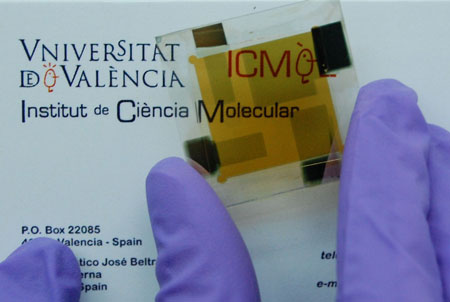 The solar cell developed by the researchers of the ICMol consists of a thin perovskite film sandwiched in between two very thin organic semiconductors. The total thickness of the device is less than half a micrometer.
The solar cell developed by the researchers of the ICMol consists of a thin perovskite film sandwiched in between two very thin organic semiconductors. The total thickness of the device is less than half a micrometer.
Dec 26th, 2013
Read more